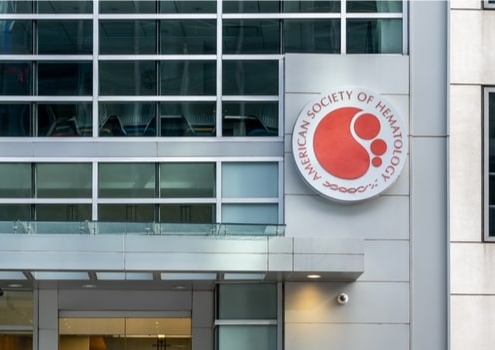ASH 2020: CRISPR and Vertex’s Potential Cure for Sickle Cell Disease and More Glimmers of Hope
ASH 2020: CRISPR and Vertex’s Potential Cure for Sickle Cell Disease and More Glimmers of Hope
CRISPR Therapeutics and Vertex Pharmaceuticals presented new data on 10 patients treated with CTX001, which demonstrated a consistent and sustained response, in transfusion-dependent beta thalassemia (TDT) and sickle cell disease (SCD). CTX001 is an investigational CRISPR/Cas9-based gene-editing therapy. This accompanied the publication of a study in The New England Journal of Medicine describing two patients who have received the therapy the longest—and all of the data is promising.
This is one of the more notable landmarks in both CRISPR and gene therapy, indicating promise of a curative therapy for sickle cell disease.
Michael Yee, an analyst with Jefferies, wrote in a note to investors, “Vertex looks like it has a potential ‘curative’ type gene editing drug which could be $1 billion-type potential in the future (sickle cell has 10x more patients than beta thalassemia). This program doesn’t get sufficient attention from Vertex holders mostly because Street is more enamored with the AAT Phase II, but this CR-SP partnership should get more attention now.”
Janssen Pharmaceutical of Johnson & Johnson announced longer-term data from the combined Phase Ib/II CARTITUDE-1 trial evaluating ciltacabtagene autoleucel (cilta-cel) for r/r multiple myeloma. Cilta-cel is an investigational B-cell maturation antigen (BCMA)-directed chimeric antigen receptor T cell (CAR-T) therapy.
Janssen also announced results from pooled analyses of long-term follow-up from multiple clinical trials of Imbruvica (ibrutinib) monotherapy and in combination as first-line treatment for CLL/SLL with high-risk features.
AbbVie and Genentech presented extended follow-up data from the Phase III MURANO and CLL14 clinical trial of Venclexta (venetoclax) fixed duration treatment combinations. The data presented supported the use of the drug in first-line or previously treated chronic lymphocytic leukemia (CLL).
AbbVie also presented new data from the Phase II CAPTIVATE trial of Imbruvica (brutinib) in combination with Venclexta in CLL/SLL patients. The data showed the combination provided continued disease-free survival for CLL patients once treatment was complete.
Kite Pharma, a Gilead Sciences company, announced four-year follow-up data from the pivotal ZUMA-1 trial of Yescarta (axicabtagene ciloleucel) in adults with refractory large B-cell lymphoma. Of the 11 patients in the Phase II cohort, Yescarta was administered to 101 patients with refractory LBCL and the median time from leukapheresis to complete response (CR) was less than two months. There have been no Yescarta-related secondary malignancies reported.
Kite also presented follow-up data from the ZUMA-2 trial of Tecartus (brexucabtagene autoleucel) in adults with r/r mantle cell lymphoma (MCL). At the median follow-up of 17.5 months, 92% achieved a response, including 67% with CR.
Gilead also updated results from the Phase Ib trial of magrolimab in AML patients ineligible for intensive chemotherapy, including patients with TP53-mutant AML. Magrolimab is its potential first-in-class, anti-CD47 monoclonal antibody.
Bristol Myers Squibb and bluebird bio updated data of the company’s BCMA directed CAR-T therapy idecabtagene vicleucel (ide-cel). The data included longer-term updated results from the original Phase I CRB-401 trial in r/r multiple myeloma, including the primary endpoint of safety and exploratory endpoints of progression-free survival (PFS) and overall survival (OS).
Syros Pharmaceuticals announced new clinical data from its Phase II trial of SY-1425 in two acute myeloid leukemia (AML) patient populations. SY-1425 is a first-in-class selective retinoic acid receptor alpha agonist. It is being tested in combination with azacytidine.
Kura Oncology offered preliminary clinical data from KOMET-001, its ongoing Phase I/IIa trial of KO-539 in r/r/ AML. KO-539 is an oral, potent and selective menin inhibitor.
Syndax Pharmaceuticals announced updated data from its Phase I trial of axatilimab in chronic graft versus host disease (cGVHD). Axatilimab is the company’s anti-CSF-1R monoclonal antibody.
Orca Bio announced the first clinical data from its first-generation Orca-T therapy in a Phase I/II trial for cGVHD. The data demonstrated that Orca-T provided faster neutrophil and platelet engraftment, a decreased incidence of grade 2+ acute GvHD and chronic GvHD, and significantly higher one-year GvHD-free and relapse-free survival (GRFS) compared to a cohort of patients receiving standard-of-care hematopoietic stem cell transplant.
Fate Therapeutics presented a patient case study from its Phase I trial of FT596. FT596 is a universal, off-the-shelf, CD19-targeted CAR natural killer (NK) cell product candidate. The patient was heavily pre-treated for diffuse large B-cell lymphoma (CLBCL).
Autolus Therapeutics announced new data highlighting progress of its AUTO1 program in r/r adult B-Acute Lymphocytic Leukemia (ALL). The program is the company’s CAR-T cell therapy currently in the ALLCAR Phase I trial.
Poseida Therapeutics reported results from an ongoing Phase I trial of P-BCMA-101 in r/r multiple myeloma. P-BCMA-101 is an autologous CAR-T product candidate.
BioSpace source:




